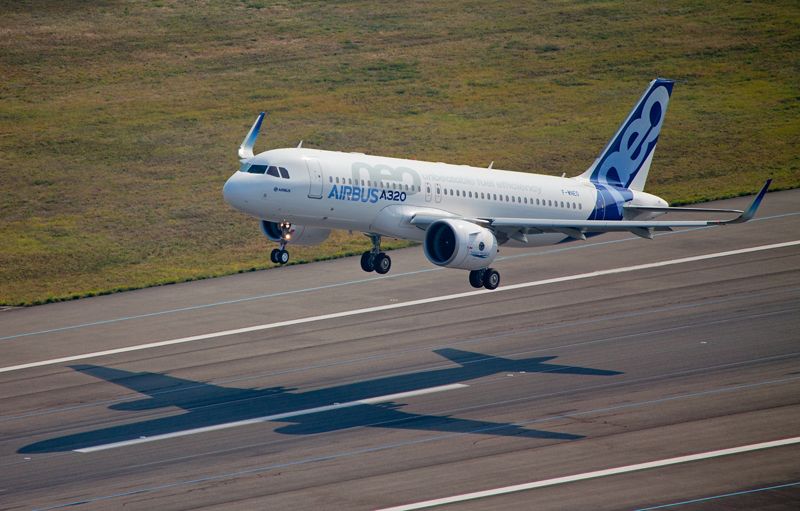Aerospace manufacturer Airbus SE is building a hydrogen fuel powered commercial aircraft in the race to decarbonise the aviation industry.
—
European aerospace company and manufacturer Airbus announces its plans to build hydrogen fuel powered commercial planes, and is fairly confident that they’ll enter service by 2035.
The aviation industry has put forward a range of proposals to reduce greenhouse gas emission ahead of next month’s COP26 climate summit in Glasgow, Scotland. While a number of airlines are currently reliant on carbon offsets as an immediate response to cutting emissions, as well as investment in sustainable aviation fuel, Airbus believes hydrogen fuel to be the long-term answer.
“We don’t need to change the laws of physics to go with hydrogen,” said Guillaume Faury, the CEO of Airbus, at an event on sustainability in Toulouse. “Hydrogen has an energy density three times that of kerosene — [technically it] is made for aviation.”
However to make hydrogen jets a reality, Faury warns it requires significant government and regulatory support. The sentiment was echoed by EasyJet CEO Johan Lundgre, stating state support is needed to develop hydrogen supplies and infrastructure, and that governments should offer tax breaks and reduce airport changes for any airline that operates hydrogen planes.
The global aviation industry accounts for about 2.4% of global greenhouse gas emissions, based on data before the COVID-19 pandemic. The sector was also on an upward trajectory in the past few years, where emissions output shot up by 29% between 2013 and 2019, according to the International Council on Clean Transportation.
You might also like: Should Airline Passengers Subsidise Green Fuel to Cut Emissions?
Many airlines have been looking into ways to decarbonise, and sustainable aviation fuel (SAF) is currently taking the lead. Though the adoption of it or other alternative fuel and sustainable models are still slow and lagging. The lack of availability of SAF has led to soaring prices (and much higher ticket prices for passengers), discouraging companies to transition especially after being hit hard by the pandemic. Other airlines, such as Rolls-Royce, are still in the testing stage on the viability of a plane running entirely on electricity.
Building hydrogen fuel powered aircrafts has its own challenges however, the first being finding an effective method to liquefy hydrogen and store it at minus 253 degrees centigrade. Special double-skinned tanks needed to contain the substance will need to be four times the size of conventional fuel storage, and be able to fit inside the body of the aircraft. Airports will also need to undergo major infrastructure changes to allow hydrogen fuel storage, too.
The not insignificant obstacles have made skeptics in David Joffe from the UK’s Climate Change Committee, saying that planes bought today will “still be operating in 2050” and that “we need solutions earlier than that.”
As international travel slowly resumes following the pandemic and greenhouse gas emissions from the sector will very likely soar up again, the aviation industry urgently needs an energy revolution in meeting climate goals set out in the Paris Agreement.
Featured image by: Airbus SE


















